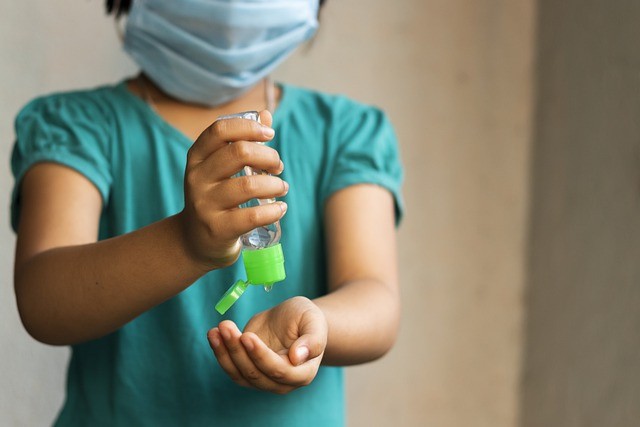Your Guide to Safety: What to Do If You Think You Have Coronavirus

The coronavirus outbreak has affected many people in more than 100 countries. With the confusion coming from all parts of the internet, it can be hard to find an easy guide to safety.
A guide to safety can help people, especially those who get infected by the coronavirus. It protects the people around them from catching the disease.
Here's what you should know about the various coronavirus symptoms, and a quick guide to safety for those infected.
Remember to keep these precautions in mind if you think you have been infected:
'I'm Displaying Symptoms. What Should I Do?'
The biggest COVID-19 red flag is shortness of breath, said a HuffPost report. From that point, you'll likely experience a high fever and severe cough as well.
A study from the Frontiers in Public Health journal published a common sequence for when symptoms arise. The research team found that fever is the most common symptom to appear first, so make sure you isolate yourself until you start to feel better.
If matters come to worse, it's important that you seek medical attention immediately. So if severe symptoms start to show, call 911.
No Symptoms? Self-Isolating is Still Key
Even if you're not showing any symptoms, it's still advisable to isolate yourself if you came in close contact with a COVID-19 infected.
You also have to be cautious if you have any history of medical conditions that can lower your immune response.
Board-certified physician Kristin Dean said the immune system's decreased performance can come from various conditions. Some of them include old age (65 or older), diabetes, heart disease, HIV, and others.
If a person falls into any category that puts them at lower immune response, it's best to call a health care provider. This will be especially important if a person travelled in areas with high COVID-19 transmission.
Don't Panic
Despite getting infected, some patients have to relax and not panic.
Dr. Linda Anegawa from virtual health platform PlushCare said most COVID-19 cases are mild and resolve on their own. She compared the recovery process to that of the flu.
She reminded people to stay people and out of public places, but to seek in-person care for dangerous symptoms.
'I Can't Get Diagnosed. What Do I Do?'
Some parts of the U.S. have suffered from shortage of COVID-19 testing. According to Wall Street Journal, there was a shortage of critical reagents, hampering community testing efforts.
Some high-risk areas might not get a diagnosis because of this shortage. If you're one of these people, it's still important to stay at home to reduce the spread of the disease.
"If you suspect you have COVID-19, please do not go to work, school or out in public places, until you are directed to do so by a health care provider," Dean said.
Dean added that there may be ways to remedy symptoms for mild cases like over-the-counter fever and cough medications. She reminded that antibiotics will not be effective since the illness was caused by a virus.
Just like everyone, it still best to avoid high-risk places, wash hands, disinfect surfaces and maintain a safe distance.
Physician Jake Deutsh said: "If everyone with a sore throat goes to the hospital, resources will be used unnecessarily." He noted that people who are at clearly higher risk should be given the intensive-care treatment instead.
"Judge your symptoms and put them in context of your medical problems," he added.
Check these out!
Vitamin D Deficiency Symptoms You Have to Look Out For
COVID-19 or Flu? These Symptoms Can Help You Differentiate
COVID-19 Symptoms Commonly Appear in This Order, Says a New Study
Subscribe to Latin Post!
Sign up for our free newsletter for the Latest coverage!

















